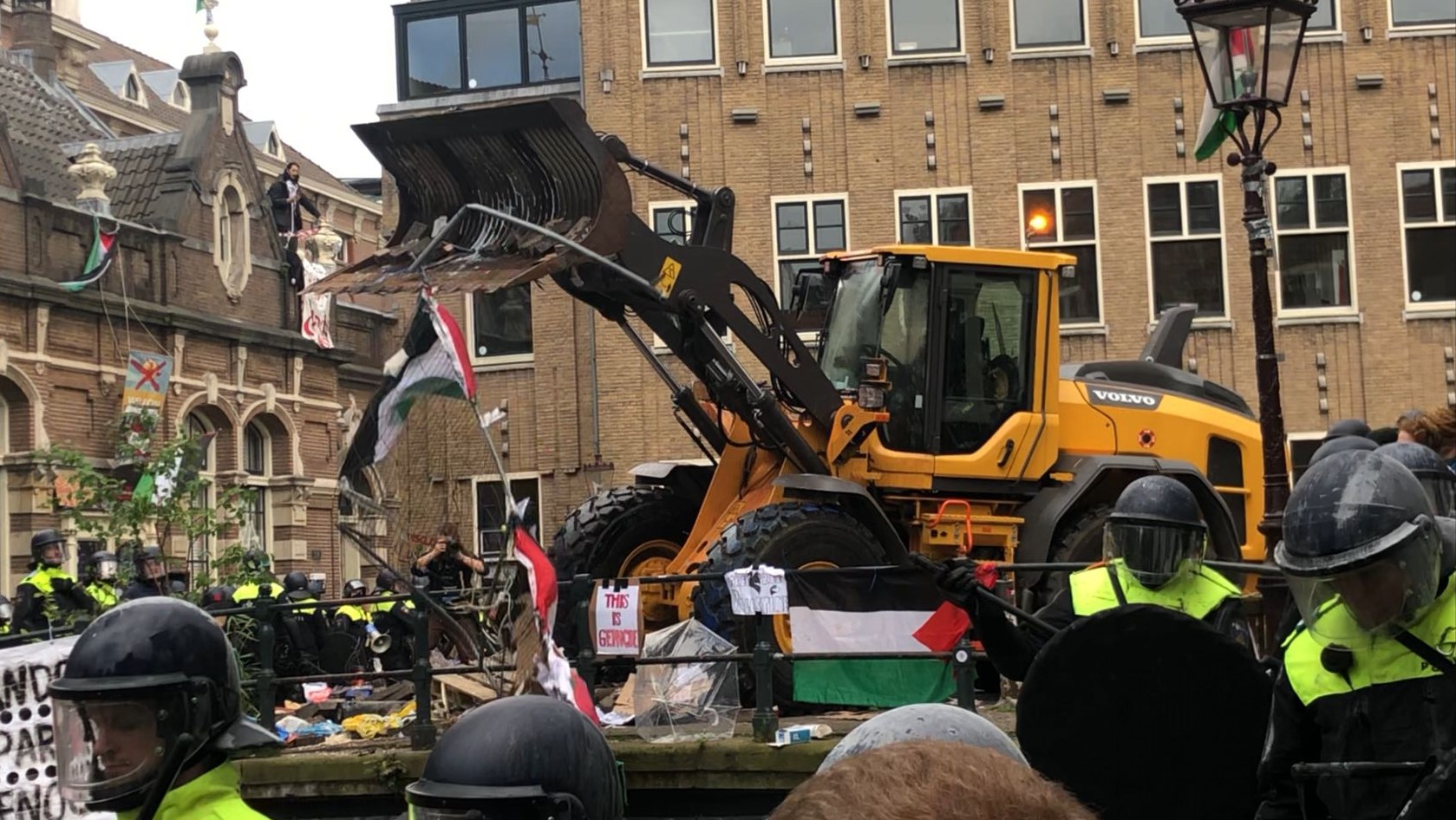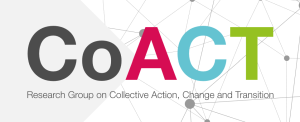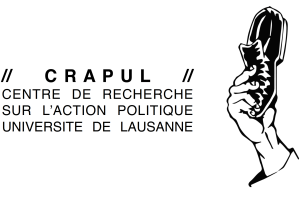As social movement scholars we express strong concerns about the growing trend to restrict the right of expression, critique, and protest in several countries in Europe. Signed by research centres, journals and standing groups.

As social movement scholars we express strong concerns about the growing trend to restrict the right of expression, critique, and protest in several countries in Europe. Especially in relation to pro-Palestinian protests, university administrations have called police to campuses, with ensuing use of intimidation and force by police, often in riot gear, against peaceful protestors. Politicians of different parties have defamed students as well as members of the academic staff who have intervened in support of the right to protest, accusing them of supporting violence, while proposing new laws and regulations oriented to increase the means for political repression through the expulsion of students and the firing of staff members. Mainstream media and pressure groups have contributed through law-and-order campaigns, supporting the calls for more and more restrictive legislation, as well as launching smear campaigns against individual protesters and scholars who have signed petitions for the right to free speech . University administrations have in some cases used their power to threaten or even suspend and fire employees exercising their right to freedom of speech, petition, and assembly, which must also be understood in relation to the proliferation of precarious and fixed-term university positions.
Against this background, we feel it is our duty to warn against the effects of this authoritarian move on our society. Social movement studies have pointed to the importance of protests in the development of ideas and innovations, in building spaces of learning and exchanges, and in fostering critical citizens. A backlash against long-established freedoms of speech and assembly will have extremely negative effects on teaching and learning. As entire fields of knowledge, from queer and gender studies to postcolonial studies, are under attack, it is all the more important to defend and promote critical and free research, as well as the rights of students and staff to engage politically without repercussions.
In increasingly difficult and tense times, it is crucial that universities remain places of open debate and experimentation. Student camps have traditionally been spaces of elaboration of knowledge and ideas. University administrations have a duty to protect free speech and protest rights. Political parties that claim to defend progressive and democratic values should uphold these fundamental rights and not subordinate them to governmental stances.
We are well aware of the polarization of the discussion of the current war on Gaza, and would therefore like to emphasize that the right to protest must be protected regardless of its position on this issue. However, restrictions in many locations are in practice selective and those who protest in solidarity with the people in Gaza are disproportionately subject to repression. The silencing of those voices by universities becomes especially puzzling and worrisome in the light of the complete destruction of the university system in Gaza. UN experts have even expressed concerns over a possible ongoing “scholasticide” . Academia worldwide must not passively watch while an entire university system is destroyed.
Scientific Research Centers
COSMOS (Centre on Social Movement Studies, Scuola Normale Superiore, Florence, Italy)
CCPS (Centre for Conflict and Participation Studies, Università del Salento, Italy)
COACT (Research group on Collective Action, Change, and Transition, Università di Trento, Italy)

CRAPUL (Centre de recherche sur l’action politique, Université de Lausanne, Switzerland)

CSM-RESIST (Civil Society, Social Movement and Resistance Research, University of Gothenburg, Sweden)

DEMINOVA LAB (Laboratory for Democratic Innovations and Social Movements, Aarhus University, Denmark)
Laboratory of Collective Actions and Social Movements (University of the Aegean, Greece)

Movements@Manchester (University of Manchester)
MOVICON (Movilización, Contienda Política y Cambio Social, Universidad Complutense de Madrid, Spain)
![]()
RADICAL SPACES (Freie Universität Berlin, Germany)
Scientific Journals
Interface – a journal for and about social movements
Standing Groups & Research Networks
ESA (European Sociological Association) RN25 Social Movements
CES (Council for European Studies) Research Network on Social Movements
SISP (Società Italiana di Scienza Politica) Standing Group su Movimenti Sociali e Partecipazione Politica
To add your individual signature as a social movement scholar to the present statement, please fill this form.
Individual signatures
Lorenzo Bosi (Scuola Normale Superiore)
Lorenzo Zamponi (Scuola Normale Superiore)
Linda Soneryd (Örebro University)
Katerina Vrablikova (University of Bath)
Kivanc Atak (University of Gävle)
Lotte Schack (University of Gothenburg)
Tareq Sydiq (Center for Conflicts Studies)
Sara Farris (Goldsmiths University of London)
Băluță Ionela (University of Bucharest)
Beltran Roca (Universidad de Cádiz)
Timothy Peace (University of Glasgow)
Catherine Eschle (University of Strathclyde)
Geoffrey Pleyers (FNRS – UCLouvain)
Linda Koch (University of Würzburg)
Leonidas Oikonomakis (Vrije Universiteit Amsterdam)
Catherine Moury (NOVA University)
Bahar Yalçın (Phd student)
Tiago Carvalho (ISCTE – University Institute of Lisbon)
Carl Cassegard (University of Gothenburg)
Dimitris Soudias (University of Kassel)
Daniela Chironi (Scuola Normale Superiore)
Chris Waugh (Manchester Metropolitan University)
Alejandro M. Peña (University of York)
Katherine Allison (University of Glasgow)
Marco Antonelli (Scuola Normale Superiore)
Martin Bak Jørgensen (Aalborg University)
César Guzmán-Concha (Scuola Normale Superiore)
Valesca Lima (Dublin City University)
Alice Mattoni (University of Bologna)
Julio mPerez Serrano (University of Cadiz)
Alessandra Lo Piccolo (University of Bologna)
Francis O‘Connor (Wageningen University and Research)
Naoual Belakhdar (Freie Universität Berlin)
Karlo Kralj (University of Zagreb)
Joana Hofstetter (Scuola Normale Superiore)
Sarah ElMasry (Scuola Normale Superiore)
Eduardo Romanos (Universidad Complutense de Madrid)
Massimiliano Andretta (Università di Pisa)
Luisa Chiodi (OBCT director)
Nerea Montejo López (Scuola Normale Superiore)
Laura Mendoza Sandoval (Scuola Normale Superiore)
Andrea Felicetti (Università di Padova)
Sabrina Zajak (Ruhr-Universität Bochum, ISA RC47)
Hanna Hacker (University of Vienna)
Pierre Ostiguy (Universidad de Valparaiso)
Simin Fadaee (University of Mancheste)
Giuseppe Lipari (Scuola Normale Superiore)
Selma Tilikete (Université Paris 8)
Louna Hassaini Moussaoui (Aix-Marseille Université )
Irina Aguiari (Scuola Normale Superiore)
Daniele Conversi (University of the Basque country)
Samuel Hayat (CNRS / Sciences Po)
Igor Sadaba (Universidad Complutense de Madrid)
Pietro Casari (Scuola Normale Superiore)
Robin Celikates (Freie Universität Berlin/MIT)
Sophia Wathne (Scuola Normale Superiore)
Irena Fiket (University of Belgrade)
Sophia Wathne (Scuola Normale Superiore)
Francesca Fortarezza (University of Bologna)
Hara Kouki (University of Crete)
Sevgi Dogan (Scuola Normale Superiore)
Baptiste Dufournet (University of Lausanne)
Pamela Torres (Paris 3 Sorbonne Nouvelle)
Carla Mannino (Scuola Normale Superiore)
Daniel Martínez Lamas (Universidad Complutense de Madrid)
Manuel Jiménez-Sánchez (Universidad Pablo de Olavide de Sevilla)
Benjamin Ferron (East-Paris University)
Phillip Ayoub (University College London)
Emin Poljarevic (Uppsala University)
Bruno Cousin (Sciences Po)
Camille Vergnaud (University of Grenoble Alpes)
Mojca Pajnik (University of Ljubljana & Peace Institute)
Louisa Parks (University of Trento)
Mona Lilja (University of Gothenburg)
Bojan Baća (University of Montenegro)
José-Luis Ledesma (Universidad Complutense de Madrid)
Anna Lavizzari (Universidad Complutense Madrid)
Martín Portos (Universidad Carlos III de Madrid)
Francesco Vacchiano (University Ca’ Foscari, Venice)
Francesco Della Puppa (University Ca’ Foscari, Venice)
Angela Adami (Scuola Normale Superiore)
Basileus Zeno (York University)
Siddharth Tripathi (University of Erfurt)
Rima Majed (American University of Beirut)
Angelos Loukakis (National Centre for Social Research –ΕΚΚΕ)
Alberta Giorgi (Università di Bergamo)
Selbi Durdiyeva (Philipps University Marburg)
Stellan Vinthagen (University of Gothenburg)
Chares Demetriou (Lund University)
Michalis Psimitis (University of the Aegean)
Filip Balunovic (University of Belgrade)
Jorge Sola (Universidad Complutense de Madrid)
Marjan Ivković (University of Belgrade)
Peter Irabor (Adeleke University, Ede, Nigeria)
Greg Martin (University of Sydney)
Stefania Milan (University of Amsterdam)
Endre Borbáth (Heidelberg University)
Piyush Pushkar (University of Manchester)
Alice Ferro Scuola (Normale Superiore)
Silvia Frosina (Scuola Normale Superiore)
Elena Pavan (University of Trento)
Giorgos Venizelos (Central European University)
Georgia Mavrodi (former post-doctoral researcher, Cosmos)
Jorinde van der Horst (Scuola Normale Superiore)
Haris Malamidis (National and Kapodistrian University of Athens)
Rafael Vázquez García (University of Granada)
Pietro Castelli Gattinara (Université Libre de Bruxelles)
Donatella della Porta (Scuola Normale Superiore)
Francesca Forno (University of Trento)
Eirini-Erifyli Tzekou (Aristotle University of Thessaloniki)
Fabio de Nardis (University of Salento)
Dimitris Pettas (Panteion University)
Alice Dal Gobbo (University of Trento)
Emanuela Lombardo (Universidad Complutense de Madrid)
Niccolò Bertuzzi (University of Parma)
Costanza Azzuppardi (Scuola Normale Superiore)
Anna Casaglia (University of Trento)
Alejandro Ciordia (Autonomous University of Barcelona)
Ahmed Samy Lotf (Scuola Normale Superiore)
Gaspare Nevola (Università di Trento)
Ewoud Vandepitte (University of Antwerp)
Richard Westra (University of Opole)
Erzsébet (Zsazsa) Barát (Central European University)
Pierre Monforte (University of Leicester)
Jannis Julien Grimm )Freie Universität Berlin)
Christian G. De Vito (Universität Wien)
Barbara Lipietz (University College London)
Shuwen Zhou (University of Oxford)
Federica de Cordova (University of Verona)
Catherine Baron (Political Science Institute of Toulouse)
Schilliger Sarah (University of Bern)
Rosanna Cima (Università di Verona)
Cristina Flesher Fominaya (Aarhus University)
Pablo Santibanez (University College London)
Teije Hidde Donker (University of Cambridge)
Caterina Froio (Sciences Po)
Francesca Esposito (Institute of Social Sciences University of Lisbon)
Federica Frazzetta (Scuola Normale Superiore )
Milka Ivanovska (Hadjievska Lund University)
Eli Melby (University of Bergen)
Susi Meret (Aalborg University)
Dorottya Mozes (University of Debrecen)
Gabriel Feltran (Sciences Po)
Rosario Freire Saray (Scuola Normale Superiore)
Jacopo Custodi (Scuola Normale Superiore)
Leslie Gauditz (Institut für Protest- und Bewegungsforschung e.V.)
Katarzyna Wojnicka (University of Gothenburg)
Theodoros Karyotis (University of Ghent)
Francesco Sticchi (Oxford Brookes University)
Donagh Davis (Sciences Po Paris)
Christina Hansen (University West)
Marco Deriu (Università di Parma)
Fabio Ricciardi (Università di Padova)
Gianni Piazza (University of Catania)
Hande Dönmez (Scuola Normale Superiore)
Alexandra Ana (Université libre de Bruxelles)
Gracia Trujillo Barbadillo (Universidad Complutense de Madrid)
Stella Christou (Scuola Normale Superiore)
Luigi Schiavo (Scuola Normale Superiore)
Kostas Kanellopoulos (National Centre for Social Research – EKKE)
Deniz Nihan Aktan (Scuola Normale Superiore)
Isabel Köhler (Gothenburg University)
Magdalena Muszel (University of Gdańsk)
Laurence Cox (National University of Ireland Maynooth)
Sotirios Karampampas (University of Essex)
Helge Hiram Abdelnoor Jensen (Inland Norway University of Applied Sciences)
Laura Guntrum Technical (University of Darmstadt)
Lise Rolandsen Agustín (Aalborg University)
Chris Zepeda-Millan (UCLA)
Vito Giannini (University of Bergamo)
Marco Pernarella (University of Trento)
Aurora Perego (University of Trento)
Elsa Tsioumani (University of Liege)
Bartek Goldmann (University of Trento)
Lisa Ann Richey (Copenhagen Business School)
Thomas Pierret (CNRS-IREMAM)
Juan Masullo (Leiden University)
The picture is shared under a CC BY-SA 4.0 license.
Journal Article - 2025
Journal Article - 2023
Journal Article - 2023
Journal Article - 2023
Journal Article - 2023
Monograph - 2023
Monograph - 2022
Monograph - 2022
Journal Article - 2021
Journal Article - 2021